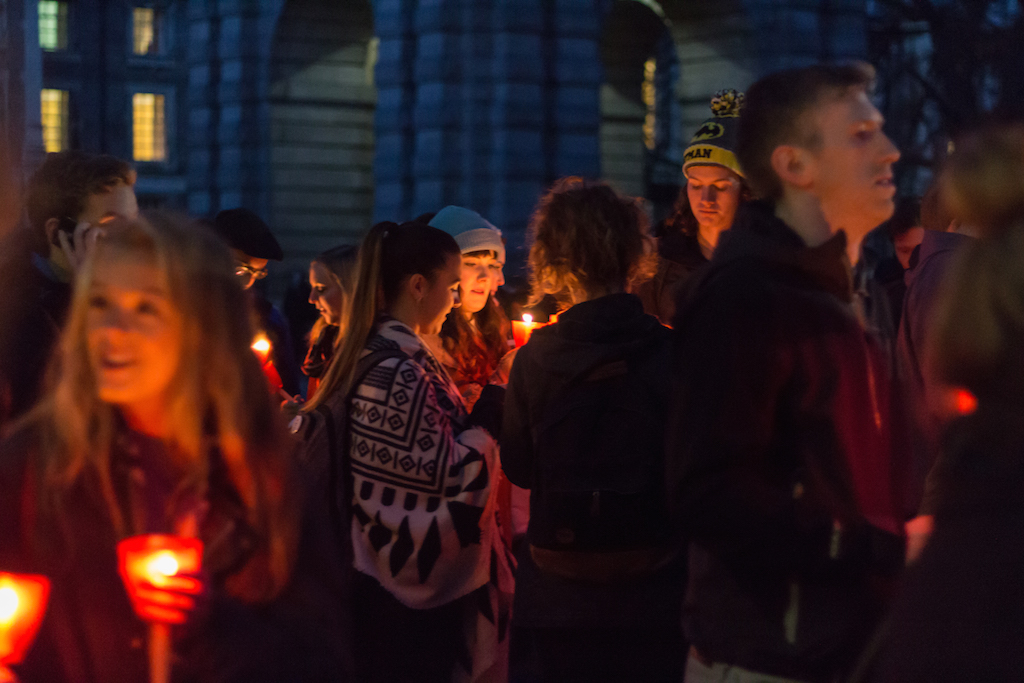Trinity College Dublin Students’ Union, in collaboration with the Society for International Affairs (SOFIA), held a candlelit vigil this evening in remembrance of the victims of recent attacks in Paris, Beirut, Baghdad and Nigeria.
The vigil, held at the Hall of Honour Memorial in Front Square, offered students and staff a chance to “show support for the victims of violence wherever they may be”, according to TCDSU Welfare Officer Conor Clancy, who opened the proceedings. Welfare committee members distributed candles to all attendees, which were lit in unison at the culmination of the ceremony.
Clancy was followed by a number of speakers, including former president of the TCD Muslim Students Association, Amr Dawood. Dawood declared that “we should condemn the killing of innocent souls regardless of race, ethnicity, or religion.” After speaking, Dawood quoted a verse from the Quran in both Arabic and English.
Other speakers included the current president of TCD Muslim Student Association,Adeen Solaiman, and Dr. Reverend Julian Hamilton of the TCD Chaplaincy. Hamilton spoke about his own experiences growing up in Bangor, Northern Ireland, where he “saw terrorism nearly every day on the news.” He emphasised that “lighting a candle makes a difference, because you’re stabbing the darkness,” explaining how a seemingly superficial act can represent an unwillingness to despair in the face of senseless violence.
Then, as a singer performed quietly at the front of the crowd, students began to light their candles in unison, borrowing lighters from neighbours and lighting candles end to end. At the end of the song they observed a minute of silence that concluded the proceedings.
Earlier today, The University Times reported that College’s Senior Tutor, Dr Claire Laudet, and Head of Counselling Service, Dr Deirdre Flynn, had flown to Paris to provide support to Trinity’s Erasmus students after last Friday’s terrorist attacks, which left 129 people dead. On Wednesday night, they addressed all Trinity students currently in the city, and offered them the opportunity to talk on a one-to-one basis.







